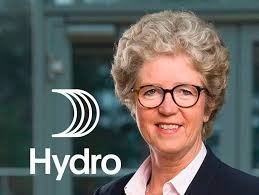

The chief executive officer of the Norwegian aluminium giant conveyed to one of the most recognised international news agencies that Hydro anticipates a rapid increase in demand for its low-carbon aluminium in the coming years. Furthermore, Hilde Merete Aasheim, the CEO, noted that US customers are growing interested in recycled materials.

Aluminium is pivotal in transitioning to cleaner energy, particularly in electric vehicles. Its lightweight construction utilisation enhances the driving range of EVs while compensating for the weight of other components, such as batteries.
The process in the production of primary aluminium requires substantial electricity consumption, which is highly carbon-intensive. As a result, environmentally conscious consumers seek to maximize their use of recycled and low-carbon aluminium to reduce their carbon emissions. Hydro's low-carbon aluminium encompasses recycled materials and the metal generated by its facilities through the use of hydroelectric power.
Hilde Merete Aasheim said, "Growth in demand for low-carbon aluminium far exceeds expectations for average consumption."
Hydro anticipates a 20 per cent annual increase in demand for its environmentally friendly products until 2030, while the primary aluminium market is projected to grow at a slower rate of 3 per cent per year during the same period. Although Hydro didn't provide specific figures regarding the premium it might charge for its low-carbon aluminium, it emphasized that the premium would be higher for products with lower CO2 content.
The production of one metric ton of aluminium in China can produce up to 20 tonnes of carbon emissions, primarily due to the heavy reliance on coal for power generation. In contrast, the emissions in Europe for the same process are notably lower, typically around 7 tonnes. Additionally, each tonne of primary aluminium Hydro produces generates about 4 tonnes of carbon emissions. However, it is known that secondary or recycled aluminium typically consumes only 5 per cent of the energy required for primary aluminium production.
Aasheim stated that despite the rising costs of raw materials and a slowdown in construction activity in Europe, the construction sector's appetite for recycled aluminium products remains "exceptional."
Hydro is increasing its recycling capacity in the United States, with some support from the US Inflation Reduction Act (IRA), which includes a pledge to enhance the domestic supply of essential minerals for the energy transition.
Responses








